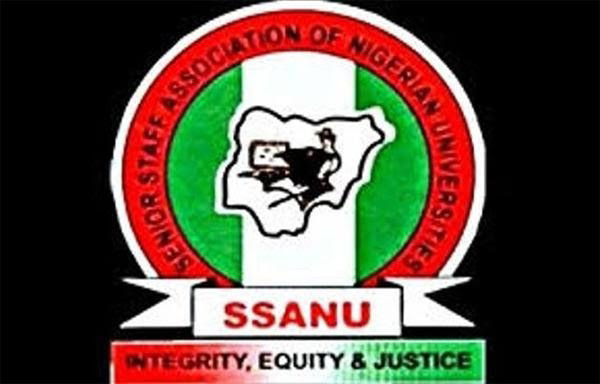JAC said it has written protest letters to the Chief of Staff to President Bola Tinubu over the exclusion of the non-academic staff when the government decided to pay part of the withheld salaries but the letters were not responded to two weeks after they were written.
The Joint Action Committee (JAC) of the Non-Academic Staff Union of Educational and Associated Institutions (NASU) and the Senior Staff Association of Nigerian Universities (SSANU) has issued a one-week ultimatum for the Nigerian government to pay the unions’ members’ withheld salaries or risk an industrial action.
In a statement jointly signed by SSANU President, Mohammed Ibrahim, and NASU Secretary, Peters Adeyemi, the workers asked the government to pay the withheld salaries like their academic counterparts who were paid four months out of the months owed.
JAC said it has written protest letters to the Chief of Staff to President Bola Tinubu, Femi Gbajabiamila, over the exclusion of the non-academic staff when the government decided to pay part of the withheld salaries but that the letters were not responded to two weeks it was submitted.
“We therefore use this opportunity once again to call on the federal government to do the needful within the next seven days as the Joint Action Committee of NASU and SSANU should not be held responsible should the wheel of administration and corporate governance be grounded to a halt in the university sector, as we have exercised enough patience,” part of the statement reads.
FIRS
The statement added: “If nothing is done by the federal government to positively address this situation and respond to our previous letters to them, the members of the two unions may be forced to meet soon to take all lawful and stringent decisions on the matter.”
JAC said it has done everything possible within its power to prevail on their members to maintain industrial peace and tranquillity.
“While we appreciate the Federal Government for paying our academic counterpart, we also deem it necessary that our members are also paid,” the statement said, adding that the unions can no longer guarantee industrial harmony on the campuses should the government fail to pay them.
Withheld Salaries
In 2022, two months after ASUU commenced nationwide strike, both SSANU and NASU also embarked on nationwide industrial action that further crippled activities across the campuses.
The action was to protest the government’s failure to fulfill its promises to the workers and what they described as gross underfunding of the universities.
At the time, the former administration of President Muhammadu Buhari invoked a ‘No Work, No Pay’ policy and withheld the workers’ salaries.
The National Association of Academic Technologists (NAAT) also took part in the strike at the time.
SSANU queried the rationale behind the government’s insistence on the “no work, no pay policy,” saying the due process was followed before embarking on the strike that lasted four months. Till the end of his tenure, Mr Buhari never authorised the payment of the workers.
Selective payment
However, in October, Mr Tinubu announced that his government would pay four months of the withheld salaries to members of ASUU, immediately raising concerns as to the fate of the members of the other unions.
The National Vice President of SSANU, Abdussobur Salaam, told this newspaper at the time that the directive appeared to be selective in favour of a single union out of others whose members’ salaries were withheld.
He said the president’s directive if not reviewed to include SSANU and other unions could be a recipe for disaster as he threatened another round of strikes if SSANU members’ withheld salaries were not paid alongside that of ASUU.
“The directive appears to be misdirected because all university unions went on strike last year and not ASUU alone. To that extent, that directive cannot be selective in favour of a single union but can only be general,” Mr Salaam said in October.
Some days ago, the Nigerian government began paying the academics, leaving out the non-academic staff.
“If nothing is done by the federal government to positively address this situation and respond to our previous letters to them, the members of the two unions may be forced to meet soon to take all lawful and stringent decisions on the matter,” JAC said.



